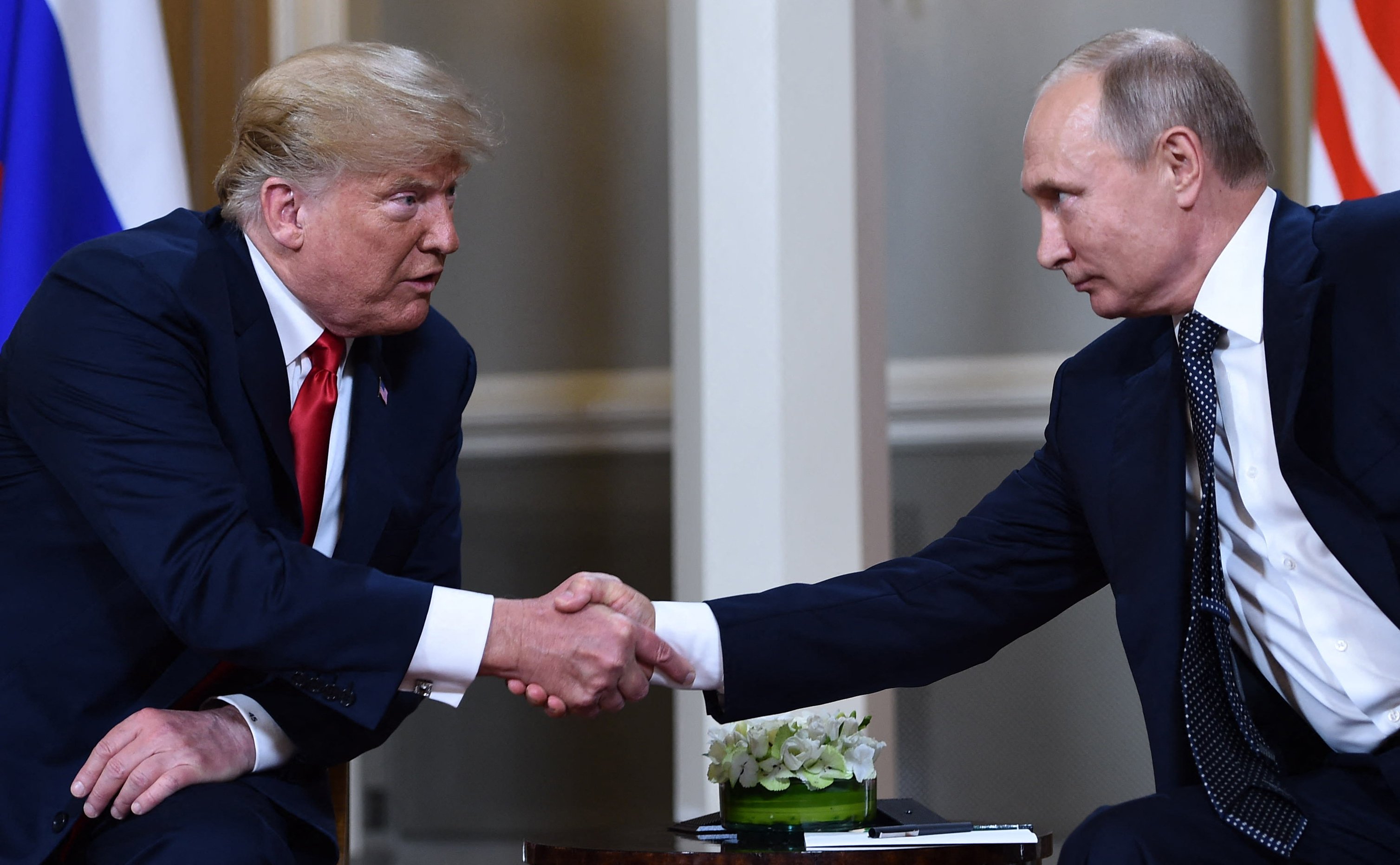
By February 24, the actual anniversary, it may be all over, new US President Donald Trump being convinced that his skills in international diplomacy mean that he could end the conflict.
"I’ll have that done — I’ll have that done in 24 hours," Mr Trump said in May when asked on CNN to respond to a comment that the war could be not be ended in a day.
As the war enters day 1069 the president has not got that done ... he can perhaps be forgiven, as he had a long list of things that he claimed he could fix instantaneously once elected and there are only so many hours in a day.
To be fair though, Mr Trump’s highly presumptive claim, and his actual return to the White House, has at least got the main protagonists talking — not actually to each other mind you, but through a convoluted third party dialogue as they respond to comments made by the US president.
Over the weekend, Ukraine President Volodymyr Zelenskyy set out during a speech to the World Economic Forum in Davos how a potential peacekeeping force could be deployed on his country’s border with Russia as an essential part of any peace deal.
Quite how conceivable his plans might be is debatable; Mr Zelenskyy envisaged 200,000 neutral troops would be required to ensure Ukraine security. This international peacekeeping force would likely be sourced from European nations which have all but taken sides in the current conflict, so Russian President Vladimir Putin might not be best pleased to see such an army appear on his border.
Likewise, EU nations battling to balance budgets may well blanch at the cost of deploying so many soldiers so far from home for an indeterminate period, even if it means the end to a war which all want to cease as soon as possible.
Meanwhile, as both Mr Zelenskyy and Mr Trump were addressing the Davos forum, Mr Putin was making his first public remarks on the peacemaking overtures from the US.
"We believe the current president’s statements about his readiness to work together. We are always open to this and ready for negotiations," he said.
Which on the face of it sounds encouraging, as does Mr Putin’s subsequent comment that his relationship with the US president was "businesslike, pragmatic and trustworthy".

Mr Trump is often derided as a foolish figure with a slippery grasp on the truth, but his assessment that Russia was destroying itself by refusing to negotiate a ceasefire with Ukraine is quite correct.
Indeed, both nations are suffering cruelly: casualty figures are draped in propaganda so are highly unreliable, but hundreds of thousands of military deaths and tens of thousands of civilian deaths are broad and widely accepted assessments of the human cost of nearly three years of war. Russia occupies about 20% of Ukraine, displacing about 8million civilians.
Despite renewed offensives by Russia and spirited incursions into Russian territory by Ukraine, that percentage has remained relatively stable for many months, and as the spring campaigning season nears, it seems that on the main front the war is locked in a horrific stalemate.
Mr Trump has threatened Russia with taxes, tariffs and sanctions if the war is not ended soon.
Whether the economic might of the United States is enough to make a prideful Russia eat humble pie and start ceasefire negotiations is questionable, but whatever carrot Mr Trump can offer alongside his Rooseveltian big stick might be enough so Mr Putin can claim a dignified way out of a mess entirely of his own making.
The potential exists for the war to spread further afield, something no-one wants. North Korea has already allowed itself to be dragged into the war on the ground and many other nations have economic involvements in the conflict.
While it might stick in the craw of some, the world can only hope that Mr Trump’s rhetoric can translate to reality.










